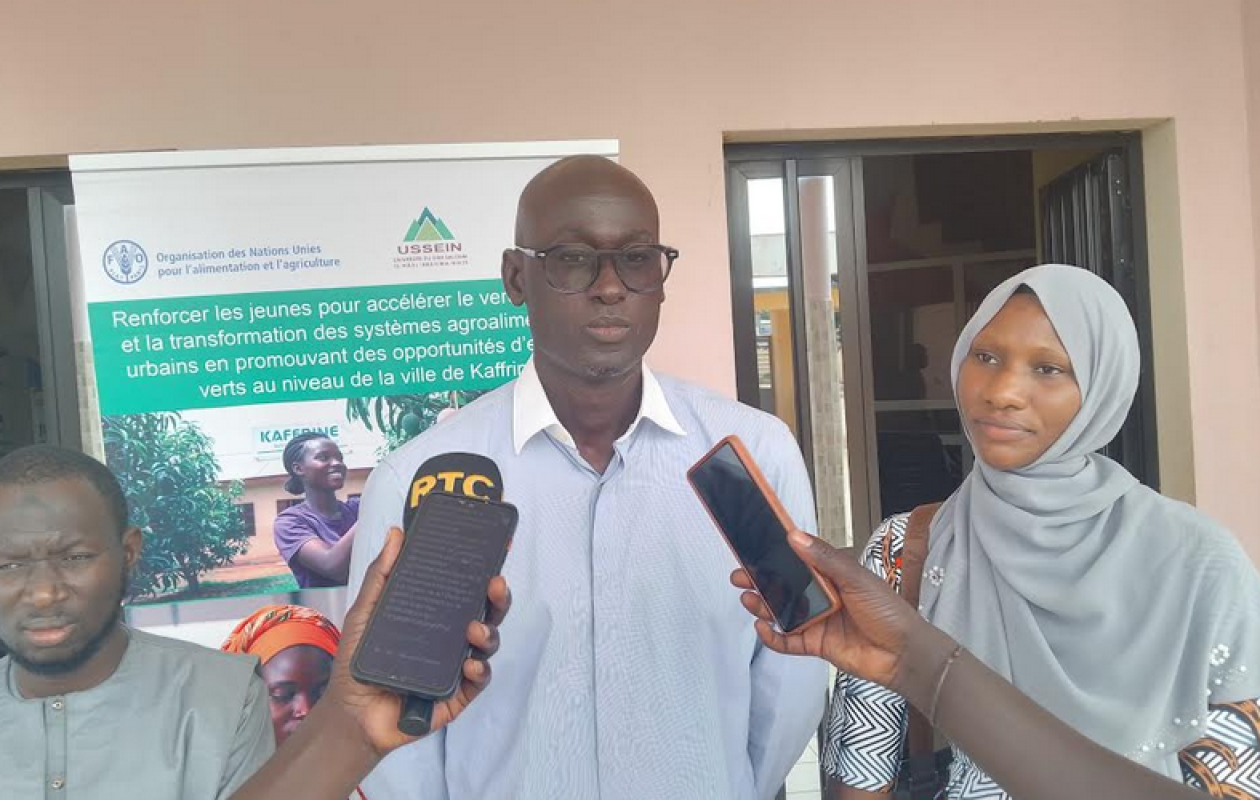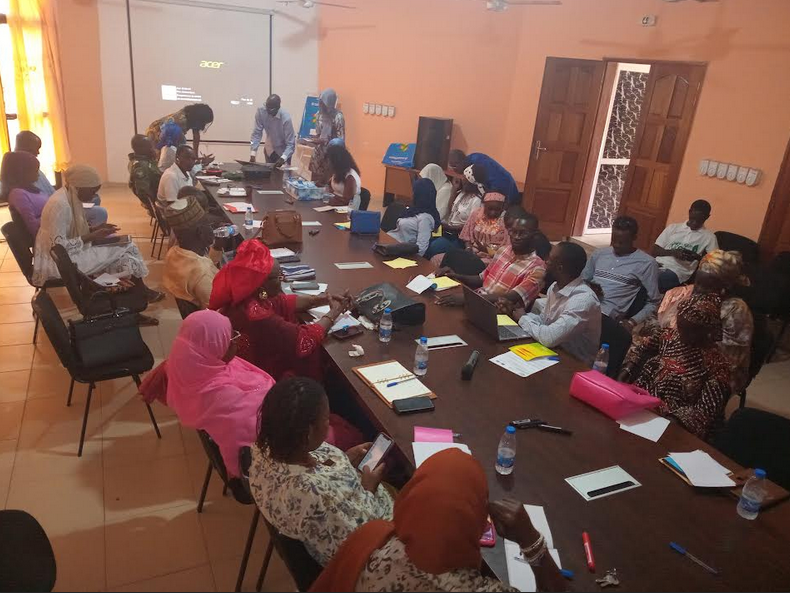
Kaffrine : Atelier de réflexion sur le plan d’action de l’Observatoire du système alimentaire
A workshop to develop the action plan for the Kaffrine Department Food System Observatory was held this Wednesday, bringing together local, institutional, and academic stakeholders. This meeting also aims to prepare stakeholders for their participation in the national dialogue on urban agri-food systems scheduled to take place in Dakar.
According to Djibril Mangane, program manager at Enda Ecopop, "the objective is to further strengthen the actors. Today, we are in Kaffrine for a workshop on planning the actions of the observatory that we have set up as part of a project carried out with the support of the university."
He specifies that this project, launched at the beginning of the year, "has made it possible to carry out several activities, including a diagnosis of data on food security issues, capacity building and dialogue forums".
“We have set up an observatory composed of several actors and we are now in the planning phase. The aim is to help these actors develop an action plan that will allow them to implement concrete initiatives to move towards more sustainable and climate-resilient agri-food systems, particularly in the Kaffrine region,” he added.
For this new phase, Djibril Mangane announced the establishment of "a platform for exchanges and the implementation of diagnostic actions based on reliable and secure data." He also emphasized the need to "strengthen the capacities of stakeholders throughout the entire chain—from production to processing, consumption, and waste recovery—so that they can act more effectively."
According to him, the data from this work "will also influence technical policies, as well as modes of production, processing and consumption. This workshop will therefore allow us to identify concrete actions to support these actors in local development."
For his part, Thierno Birahim Ndao, Secretary General of the Kaffrine Chamber of Commerce, recalled that "after the establishment of the observatory, chaired by the President of the Chamber of Commerce, we were keen to involve all stakeholders in the development of an action plan. This plan should allow us to define the orientations and objectives of the observatory."
For him, the approach is intended to be inclusive: "From this workshop onwards, everything that is proposed will be the subject of discussions between the partners, in particular the University and the Chamber of Commerce."
He expressed optimism: "Through this day of reflection, a common vision will be adopted, God willing, for Kaffrine. We have targeted the right people, as most of the participants are young professionals in the agri-food and agro-industrial sectors."
Mr. Ndao also emphasizes the importance of the partnership between the Chamber of Commerce and other stakeholders: "With the support of the Chamber — particularly in formalizing and supporting the agricultural and industrial sectors — I believe the work will be very fruitful."
He added: "We also involved the technical services, because the observatory has a departmental focus. Eventually, it will be expanded to other departments in order to create a fully operational regional observatory."
Speaking at the event, Dr. Ngor Sadio, a lecturer and researcher at the University of Sine-Saloum El Hadj Ibrahima Niass (Kaffrine campus), emphasized the University's central role in this project. "As we all know, the University has three missions: teaching, research, and service to the community. This last one is essential, as it allows the University to contribute directly to local development through concrete actions," he explained.
He noted that the University, in partnership with the Chamber of Commerce and administrative authorities, is actively involved in setting up the observatory.
“Our role within this observatory is to contribute to the collection and analysis of reliable data, capable of helping to make informed decisions and plan actions. Data is a real source of power; it is therefore necessary to know how to collect it, process it and make it accessible to decision-makers so that they can develop appropriate public policies,” he said.
For Dr. Sadio, it is impossible to talk about territorialized food systems without mentioning agriculture: "In a context of climate change, it is necessary to promote the agroecological transition, which values local knowledge and practices."
This approach, he adds, "is part of a circular economy logic, from production to consumption, including the transformation and recovery of waste. It thus contributes to driving sustainable development and a more resilient local economy in Kaffrine."
This workshop thus marks an important step in the dynamics of structuring the local food system, by emphasizing consultation, sustainability and the promotion of local initiatives for a resilient development of the Kaffrine department.

Commentaires (1)
Le Sénégalais n'aime pas avancer! Chacun aime garder ses privilèges! Pis c'est tout!!
Participer à la Discussion
Règles de la communauté :
💡 Astuce : Utilisez des emojis depuis votre téléphone ou le module emoji ci-dessous. Cliquez sur GIF pour ajouter un GIF animé. Collez un lien X/Twitter ou TikTok pour l'afficher automatiquement.